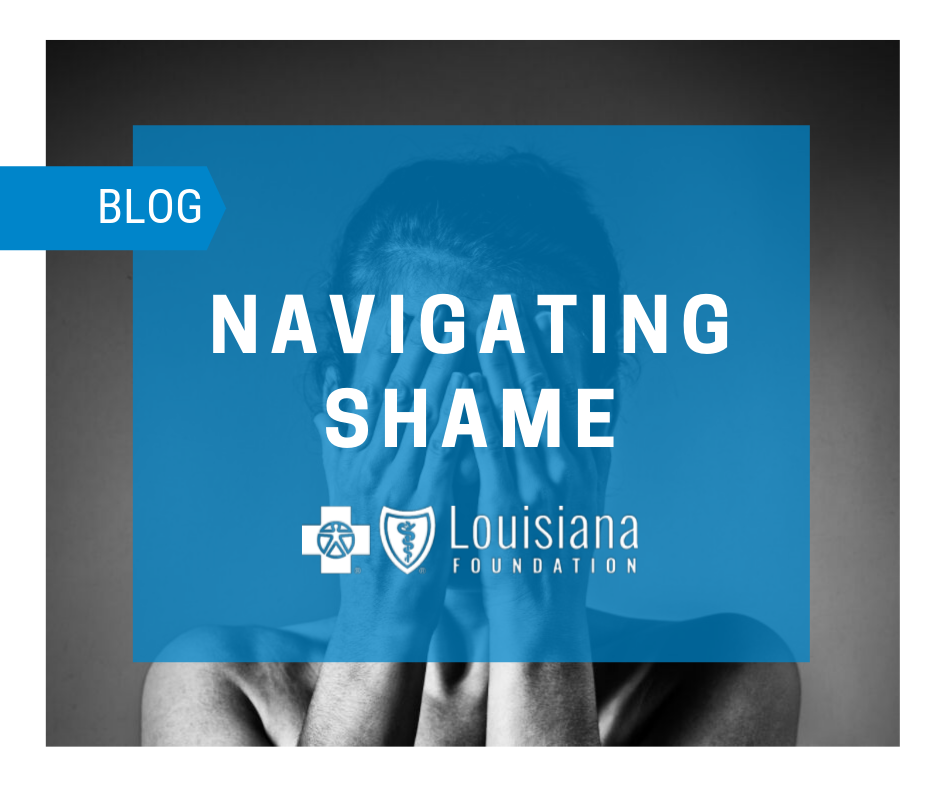Let’s pretend we’re standing in a circle with a room full of strangers, and your boss or a board member tells you that you have to jump into the middle of the circle and sing a solo.
You and I both know a rare few people who would happily jump in; the kind of folks who are just waiting for an invitation to have all eyes on them. But most of us would be paralyzed with one or more of these familiar feelings:
- A flushing or feeling of heat
- A rushing sound in the ears
- A sense of tightening in the chest or throat, or even across the abdomen
- A tingling on the back of the neck
- A feeling of everything pushing and stopping
- An experience of disconnection from the body
These are the physical manifestations of embarrassment, guilt and shame. For whatever reason, we are biologically wired to really dislike feeling foolish. And of these feelings, the most difficult of these is shame – the feeling that we are bad or unworthy. We build armor around those places that trigger our shame – body issues, social status, whether we think we are good parents, etc.
Shame triggers the same physical reactions as the fight or flight response, which is designed to protect us. The same physical sensations we feel about making a fool of ourselves are literally the same our body produces when we swerve away in a split second from a close call in traffic.
Most importantly, shame is a powerful trigger of the amygdala hijack, which overwhelms our executive function and has us making all decisions from a deeply seated, primal place, and using our secondary “logic” brains to justify decisions made by our bodies. Some of the most stubborn, defensive or outright cruel things we do are driven by feelings and motivations that are nearly impossible to articulate.
We need to talk about shame and its related feelings, because they go everywhere with us – especially to work, where it can override our ability to make good decisions. And in nonprofit work, many of us sometimes feel our personal worth tied to the outcomes of our clients. There’s sometimes a feeling of, “If I’m not changing the world for someone, am I really worthwhile?”
Shame can stop us from having hard conversations with colleagues, even though we know our project is headed in the wrong direction, because we are afraid of being called out too.
Shame can stop us from asking for the resources we need from management, a community partner, or even a potential donor, because we are afraid that we might be told no – not because a donor can’t right now, or just isn’t inspired by the cause, but because the person asking is unworthy.
Shame can stop us from fully realizing our abilities, dreams and passions, because our bodies can equate feeling like a fool with real, physical pain.
But here’s the thing: the feeling goes away if we can just endure. The thing we’re facing down may not get logistically easier, but the flushing, tight feelings can fade quickly.
Harvard Business Review has some great suggestions about controlling emotions during these moments:
- Breathe (use a breathing square to take control of the fight or flight response)
- Focus on your body, learn the triggers and how to recognize shame responses
- Tell your story, share your feelings — get a friend or loved one’s point of view to hear the truth beyond these feelings
- Take a break, and wait for the response to die down
It takes a lot to do the work you are doing for the people of Louisiana — often with a great deal of emotional exposure, which can make shame reactivity even more intense. If you need someone to give you that outside point of view and lift you up, our team is here for you. Let us, and your colleagues and other partners, know how we can be of support for you as you keep doing critically important work for people across our state.
Until next week,
– Michael Tipton
President, Blue Cross and Blue Shield of Louisiana Foundation
Head of Community Relations
michael.tipton@bcbsla.com
Subscribe to our mailing list
